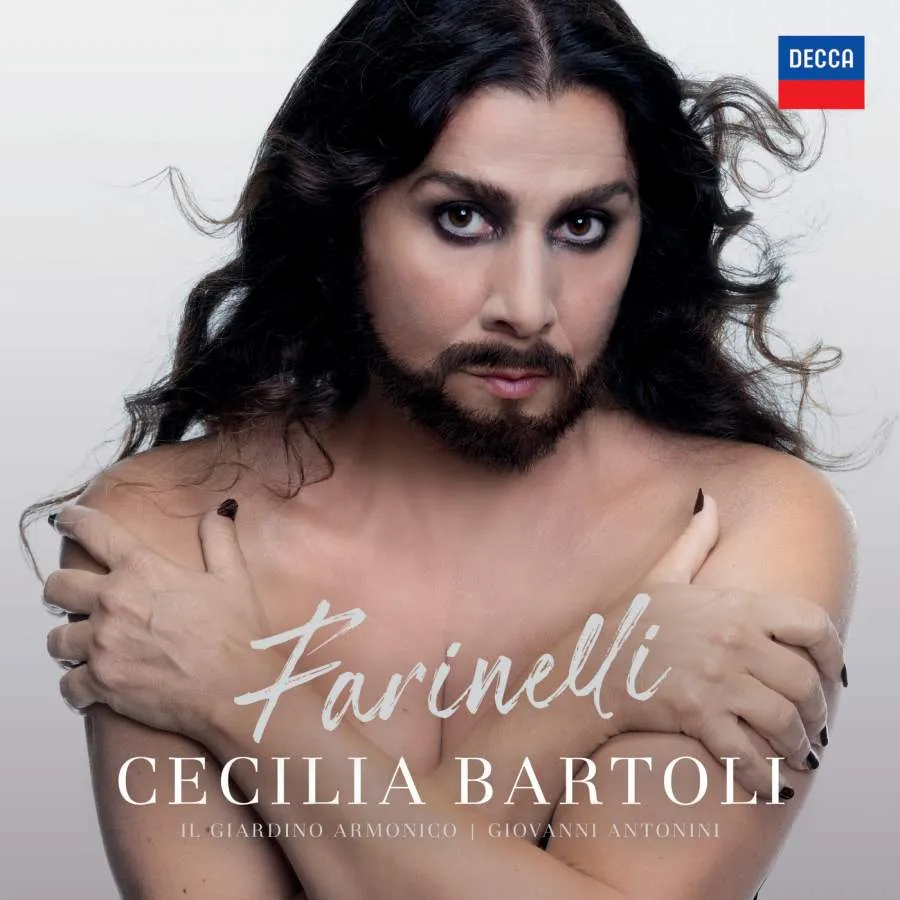
Farinelli Arias by Porpora, Hasse, Broschi, Giacomelli and Caldara Cecilia Bartoli (mezzo-soprano); Il Giardino Armonico/Giovanni Antonini Decca 485 0214 74:07 mins
Having explored the lost art of the castrati in Sacrificium, Cecilia Bartoli turns her attention to the best-known male soprano of the 18th century, Farinelli. The cover image on the new recording, with Bartoli giving a wholly credible impersonation of Eurovision Song Contest winner Conchita Wurst, suggests a story of Baroque opera easily accommodating itself to current ideas about gender fluidity, artifice and spectacle, yet that’s not quite what we are told by the music that Farinelli sang.
Arias by Porpora, Hasse and Broschi, Farinelli’s brother, reveal a singer with a phenomenal technique rather than simply a performance ego – breath control, immaculate legato, a gift for elegant ornament and an appetite for racing tempos.
Cecilia Bartoli too is fast and furious in Hasse’s aria ‘Morte col fiero aspetto’ from Marc’Antonio e Cleopatra and darts from note to note with admirable precision in Porpora’s ‘Nell’attendere il mio bene’, with octave leaps and drops into the chest register. If Farinelli delighted in adagio arias, adding his own discreet decoration, Bartoli follows suit and her reading of Porpora’s ‘Alto Giove’ is ravishing with the strings of Il Giardino Armonico providing a sumptuous accompaniment. But why the added echo to the final note?
Is Bartoli a match for Farinelli? Should we echo the 18th-century titled woman who cried, ‘One God, one Farinelli’ and promptly collapsed? To state the obvious Cecilia Bartoli is not, thank heavens, a castrato. But just possibly that’s the contemporary/Baroque artifice of this collection, pretending to be something that you are manifestly not.
Christopher Cook